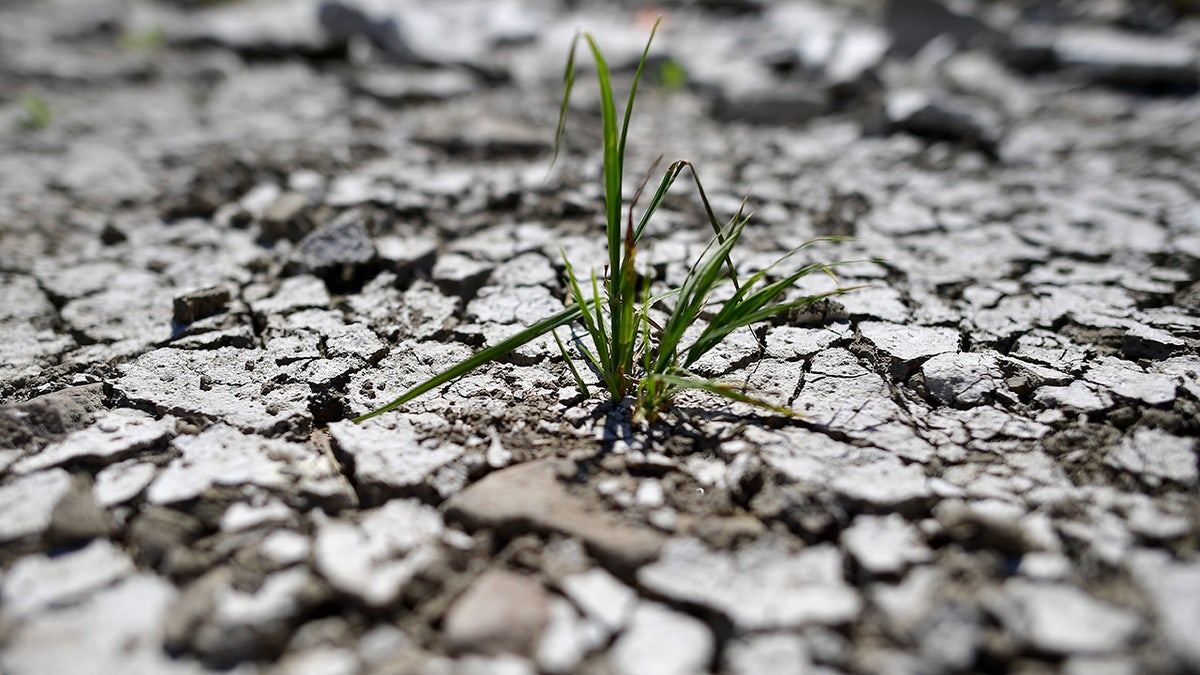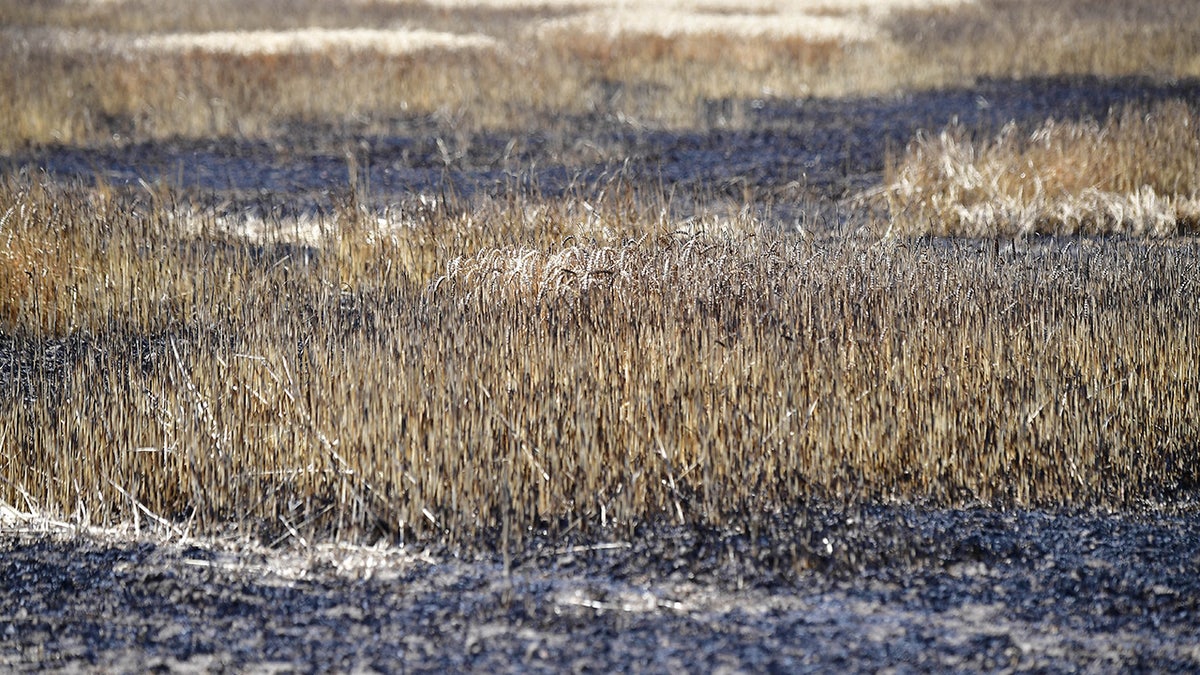
A plant is pictured in a dried out riverbed in Magdeburg, Germany. A heatwave continues to roil the country and wreak havoc on farmland. (TOBIAS SCHWARZ/AFP/Getty Images)
Extreme heat and record-low rainfall have turned German farmland into a scorched wasteland, causing massive losses, according to farmers.
Combine harvesters in the typically fertile breadbasket of Saxony-Anhalt in eastern Germany have been kicking up giant clouds of dust as they roll over cracked earth, reports Agence France Press.
“It hasn't really rained since April and that's the main growth period for our grains and the other crops — we've never seen anything like it," Juliane Stein of Agro Bördegrün, a farming conglomerate formed after German reunification in 1990, told AFP.
Stein continued: “We've reached the point here in Germany where we're talking about a natural disaster that's a threat to our livelihood.”
German authorities declare a natural disaster during a drought when at least 30 percent of the average annual harvest is destroyed. The German Farmers’ Association (DBV) has called for crisis talks on Tuesday to discuss emergency aid.
“We expect billions in losses,” DBV President Joachim Rukwied told German media last week.

Burned wheat is pictured in a field near Magdeburg, eastern Germany on July 26, 2018. (TOBIAS SCHWARZ/AFP/Getty Images)
The French press agency reports that Germany’s grain crop alone has shrunk by up to 18 million tons or around 18 percent this year, cutting 1.4 billion euros from revenues thus far.
“The government needs to declare a state of emergency so that farmers in areas hit hardest by the drought can be helped directly with cash aid,” Rukwied said.
AFP reports that sugar beets, rapeseed, potato and corn crops have been decimated in the drought — with cornstalks that should be 6 feet high at only about 2 feet tall.
Thomas Endrulat of the German Weather Service said it had been at least 15 years since the country had experienced a similarly hot, dry summer.
"Wheat when it's dry is as flammable as straw," Stein said.
Meanwhile, officials say that the grain shortage has also deprived farmers of animal feed and sent prices soaring.








































